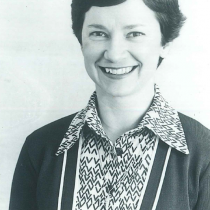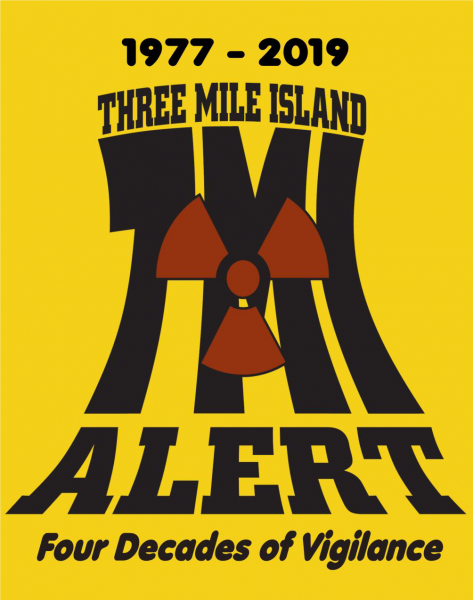On the morning of The Event, I was in the large meeting room of the multi-purpose building at Penn State Harrisburg, waiting my turn to present information about the Humanities Program to about 100 Admissions officers and counselors who had driven from community and other colleges in Pennsylvania and nearby states. The program began with welcomes from administrators and a general overview of what students who transferred for their junior-senior years could expect. Dr. Theodore Gross, the Provost of what was then called The Capitol Campus of Penn State (English majors and sticklers realized the misspelling), began his remarks only to be interrupted by his assistant who came up to the podium and whispered in his ear. My husband, then the Associate Provost, left his chair and listened, too. Sitting in the audience and observing these men whom I knew well, I realized something serious must have occurred.
Somebody has got to turn it off immediately, I demanded

Theodora
The only information Ted offered the group, as I recall, was that an event had occurred at Three Mile Island and everyone should stay put. The doors, he said, would be locked. There was some hesitation at first. I walked up to Robert Graham and asked if he knew if radioactivity had been released, and when he told me “Probably,” I asked if the air system in that room drew from outside. “Probably.” Somebody has got to turn it off immediately, I demanded. “It requires a special heating engineer and no one is available.” Livid, I said, “Well, somebody has got to try to shut it off.” No one heard this, but the counselors had come to their own conclusions–and headed to the doors. Later, I learned that the fear was not only their being outside in the air; State officials were concerned about the likelihood of traffic jamming up the roads.
The rest of the day, Ted and Bob spent making sure all students could find places to stay in the event of a disaster. By noon, I determined we should leave. The Olmsted Building was empty. I told Bob that we must drive home to pick up necessities and then to Lancaster to pick up our young son at school, and keep on driving to my aunt’s home in Eatontown, NJ. No, he said. He couldn’t leave Ted there because he was having difficulties finding places for foreign students; he could not leave them.
So we stayed until 3 pm. Ted drove home to Long Island, NY, and we to Lancaster Country Day School and then on to NJ and a town with a major military base where my uncle had been stationed.
My initial feeling was guilt
My initial feeling was guilt to be leaving neighbors and friends who couldn’t leave. Consternation about what effects radiation might have on children and people nearly TMI or within wind range. Then the fear of not knowing what had happened and was still happening.
we might be denied “The Truth” in order to keep order
 Once in NJ, I tried to believe we would be away from home for a few days, a vacation. Then came the hours and hours of watching TV and listening to the radio. We clearly knew more about the event and aftermath than people in and around Middletown, Harrisburg and the immediate region. Someone in charge had decided not to scare the inhabitants.
Once in NJ, I tried to believe we would be away from home for a few days, a vacation. Then came the hours and hours of watching TV and listening to the radio. We clearly knew more about the event and aftermath than people in and around Middletown, Harrisburg and the immediate region. Someone in charge had decided not to scare the inhabitants.
Then President Carter arrived and donned his famous protective gear: an engineer with knowledge and training entering the facility, reassuring us. But the initial dread didn’t stop. A low-grade headache dogged me for the week we spent in NJ. Newspaper readers, researchers, Bob and I understood how we might be denied “The Truth” in order to keep order, stop anticipation of what might not happen.
Later, a fine student in my class who was pregnant at the time did not return to the campus. Eric Epstein of Three Mile Island Watch was a graduate student in American Studies, and we were thankful for his on-going research, dedication to the region’s safety, indefatigable efforts to find out The Truth and let us all know. Eton Churchill and his students made a prize-winning documentary about The Event. It took a number of years for all of us on campus to lose our nervous responses. I for one would not drive from home in rural Rapho Township on Route 441 and pass those towers. They had earlier reminded me of old Fresh Deodorant appliers. Not any more. They seemed like monolithic enemies. I preferred not seeing them, even when my airplane flight leaving or returning to HIA flew right over them. Thank goodness for Eric Epstein, I would think. We’re so lucky.
And, later, when I met people from out of state or the country and they asked where I lived and taught, I’d say, “Middletown, PA. We’re the people who brought you Three Mile Island–and didn’t charge.”
I picked up the iodine tablets every time they distributed them. The packet stayed in the cabinet, unopened. And now TMI will be closed. None too soon.
(Dr.) Theodora Rapp Graham, Assoc. Prof. (Emerita), Penn State Harrisburg
English, Humanities, and American Studies (1970-1999)
